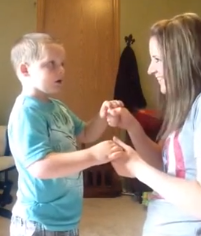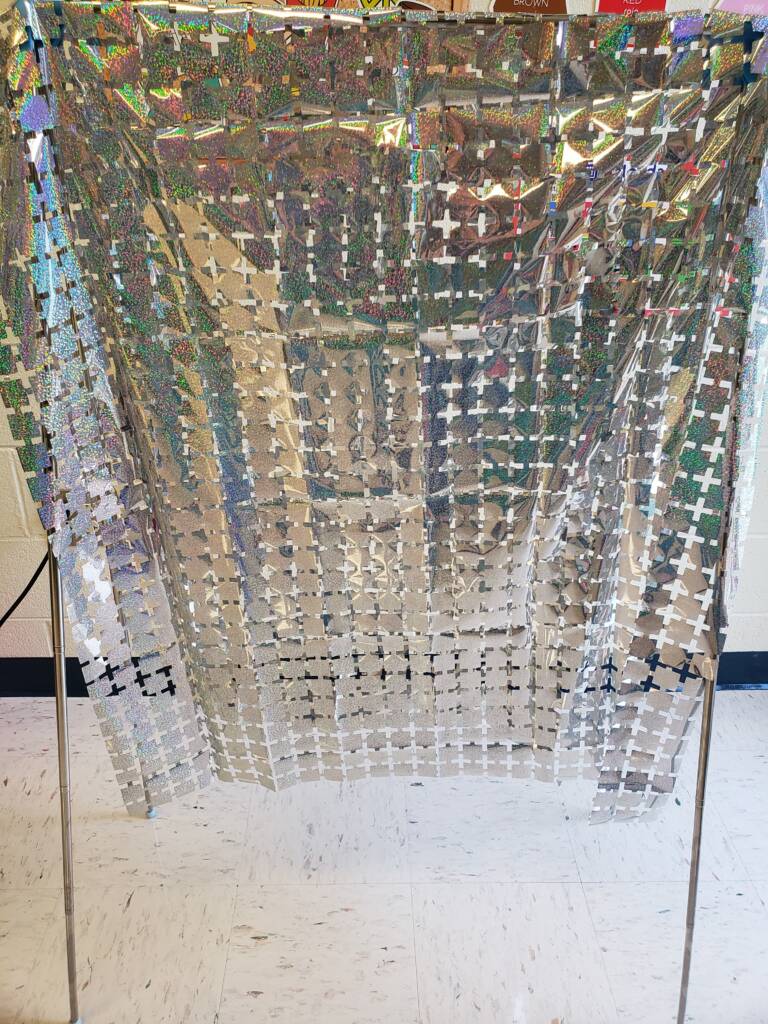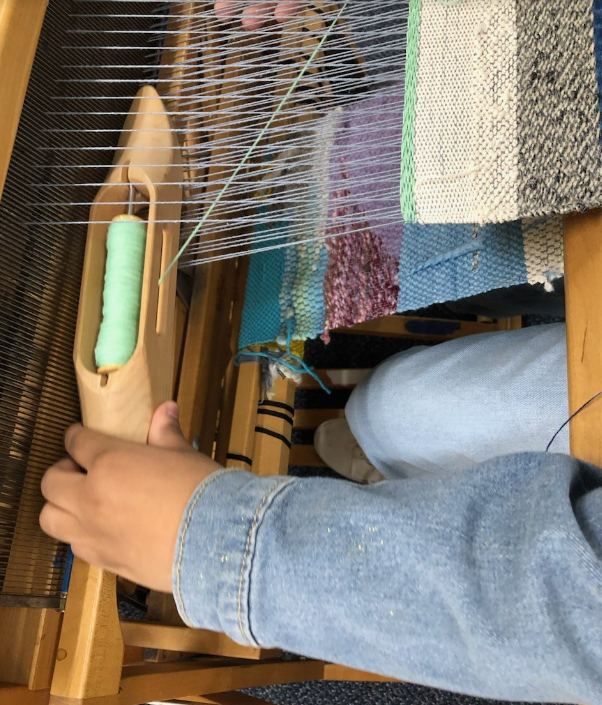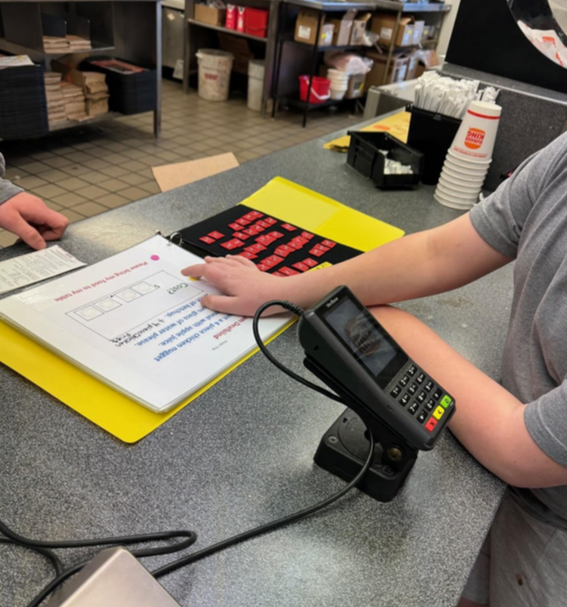There are many reasons I tell stories to my child, Liam, who is deafblind. Storytelling is fun and motivating; stories can open up a whole new world to children in general, but especially to children who are deafblind. Storytelling can encourage conversation, introduce new or build on learned concepts, aide in language development, be used as an assessment of your child’s understanding of words and concepts, etc.
Practice makes perfect: Don’t be scared to try!
I feel like I need to share a few thoughts about ASL (American Sign Language) and storytelling. My first language is English. I am working very hard to try to become proficient in ASL so that I can communicate with my son and also be a part in helping him improve in HIS first language, ASL. I know that it can be a little overwhelming for some parents (myself included) to read with their child or tell them stories using ASL. My encouragement for you is to NOT give up! Keep practicing and using all the resources you can get your hands on. It is so very important to read with your child, tell stories together and have beautiful, meaningful conversations together. All of my stories are practiced ahead of time, and I try to find someone fluent in ASL to check my accuracy whenever possible. You can find stories online in ASL to practice with and you can try to reach out to native ASL users in your community to help you practice stories. There is also a “Shared Reading Project” that is free to families that have a child who is deaf (through Laurent Clerk National Deaf Education Center Gallaudet University). You receive a book with a practice DVD of a person who is deaf signing the story for you to practice. Don’t worry if you are not perfect. As you will see in the following video I am going to share with you, I am not a perfect storyteller. I am, however, telling stories with my son and he is enjoying and learning from them. And I can only get better with practice☺.
The video clip I am sharing, is of my son Liam (age 6) and myself. I am telling him stories using Tactile American Sign Language (ASL). The video is about 2 minutes in length. The first half of the video shows the beginning of a story called Big Dog and Little Dog. The second part of the video shows the beginning part of the story of Noah’s Ark.
Be sure to turn on the closed captioning.
First half of the video: Big Dog Little Dog Story
I am telling the story that came in my “Shared Reading Project” packet. I wanted to show an example of a story that I learned from one of my resources. I adapted the story slightly and it changes even more with my son’s comments and questions. Things to notice or think about with this first section:
- I chose a story about dogs. Liam has experiences with dogs and he likes them.
- This story had some great language “lessons” in it, even in just the beginning of the story. There are two characters and they are outside. The Little Dog was playing in the puddle and he got wet. What a great opportunity for discussion and checking for understanding! Liam asked if Mom was going to wash them in the bathtub because they were dirty. That makes sense! Funny thing was, this is the first time he has heard this story and at the end the mom really does give them a bath.
- Mom modeling language and storytelling (trying my best anyway☺).
- Encourage conversation. Encourage questions. Check for understanding.
- Liam being attentive – a skill to practice!
Second half of the video: Noah’s Ark
Here I am telling a story based off the Bible story, Noah’s Ark. Things to notice:
- Liam liked the idea of Noah being a good man (note his smile) and he liked that God told him to build a boat (Liam likes boats).
- It was obvious that Liam did not understand that the man, Noah, was from the past not the present. He wanted the man to come visit him at our house (Liam is very social). It gave me an opportunity to try to explain more to him to help him understand the man was from long ago. When something like this occurs it is a great assessment of what concepts are missing and what areas to focus on for language development, for example: past and present.
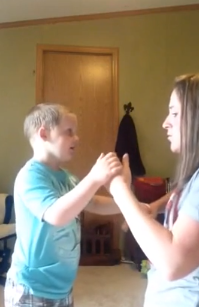
Opportunities:
I think it is important to give our children who are deafblind as many opportunities as possible to experience stories. I do try to keep the stories as close to Liam’s understanding as possible, if not just a little above. I believe, to keep Liam improving and his language vocabulary/understanding growing, I am still going to tell Liam stories even if he doesn’t understand every single word and concept (of course taking note of what is not understood to make sure to focus on and discuss with his educational team). I think of my younger son, who has typical hearing and vision. He has had ample opportunities to hear stories in books or see them on TV, etc. My goal is to give my son Liam as many of these opportunities in a way that is accessible to him. These opportunities to grow in his Language Development will help to expand his communication, as well as his literacy skills.


